2020
Mapping Social Cohesion
The Scanlon Foundation Surveys

Not one, but two surveys, in a year like no other
The thirteenth edition of the Mapping Social Cohesion research came in a year like no other.
In 2020, in the context of the dislocation of Australian society by the COVID-19 pandemic, the Scanlon Foundation Research Institute conducted not one, but two national surveys – in July and November – using the Social Research Centre’s probability-based Life in Australia panel (LinA).
Societies faced with crisis may for a time experience increased cohesion, as people respond to a common threat through mutual support. On the other hand, societies under pressure may fracture, as its members turn inward, focusing on people to blame, and searching for scapegoats.
Which way has Australia gone? Have we come together, or have we fractured? What do the 2020 survey findings reveal about the character of Australian society during an unprecedented global pandemic?
Drawing on more than a decade of benchmarking data collected in previous Scanlon surveys, the 2020 Mapping Social Cohesion Report provides insight into the resilience of Australian society when faced with a major crisis.
A survey like no other…
Two surveys in 2020; 21 demographic questions, 127 substantive questions in survey one; 62 substantive questions in survey two
3,090 respondents in July; 2,793 in November
From 2007 to 2020, we see how Australian attitudes are changing
Chapter 1
Cohesion in Crisis?
The impact of the pandemic is evidenced by the first question in the survey. When asked ‘what do you think is the most important problem facing Australia today?’, 63% of respondents said COVID-19. Prior to 2020, the highest proportion answer to this question has been the economy at 36%.
What do you think is the most important problem facing Australia today?

But what does this mean for the national mood?
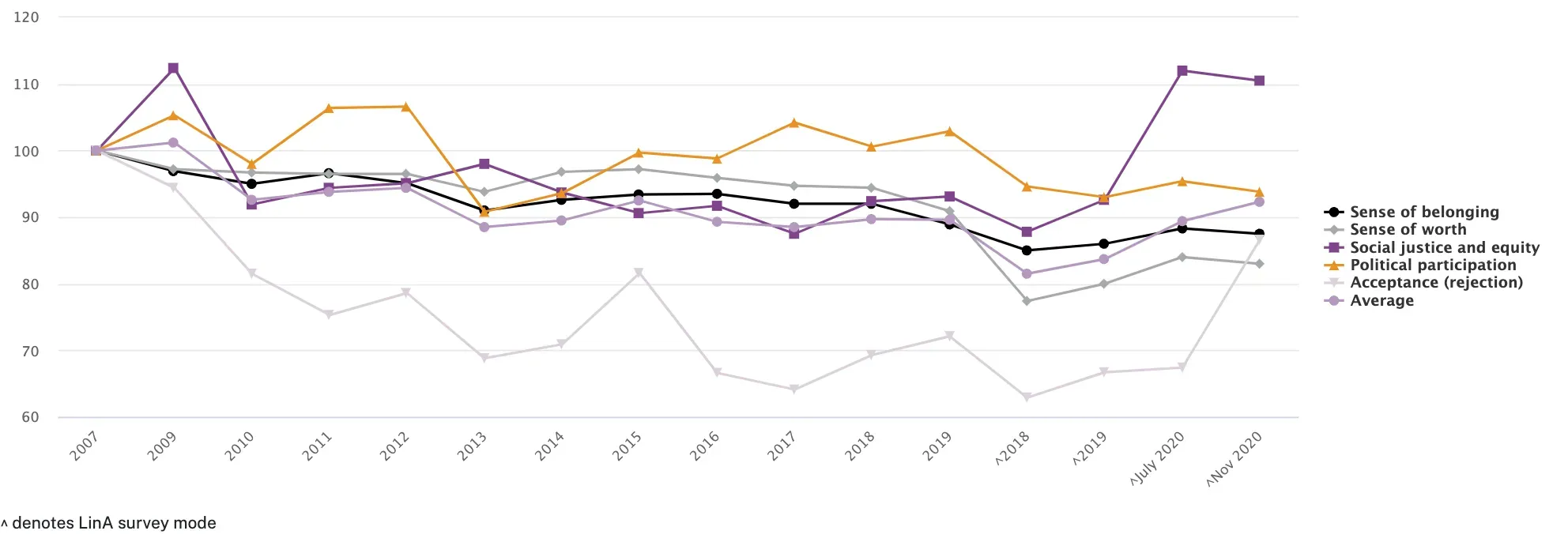
Consistent happiness
Taking all things into consideration, would you say that over the last year you have been… ‘happy’/’unhappy’?
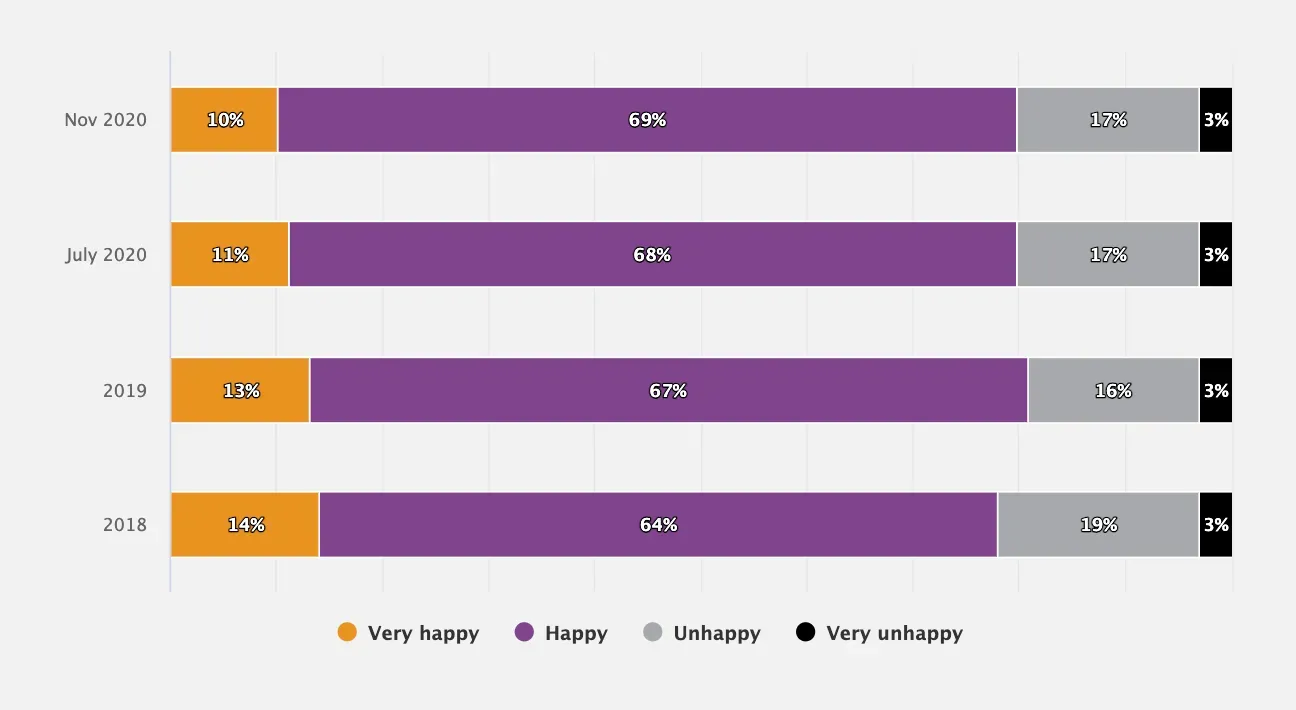
agree that ‘Australia is a land of economic opportunity where in the long run, hard work brings a better life’, compared with 71% in both 2018 and 2019
say they are optimistic about Australia’s future
Increased connection
Selected questions concerning neighbourhood
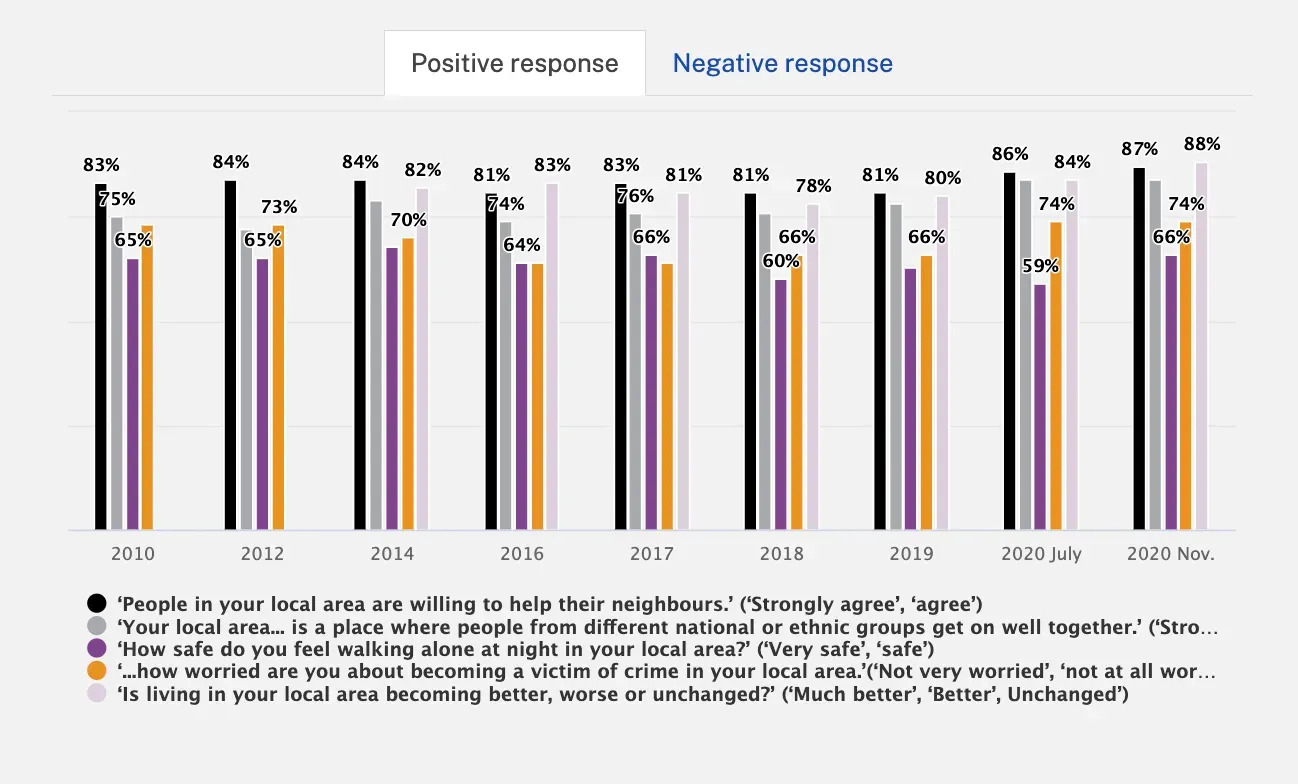
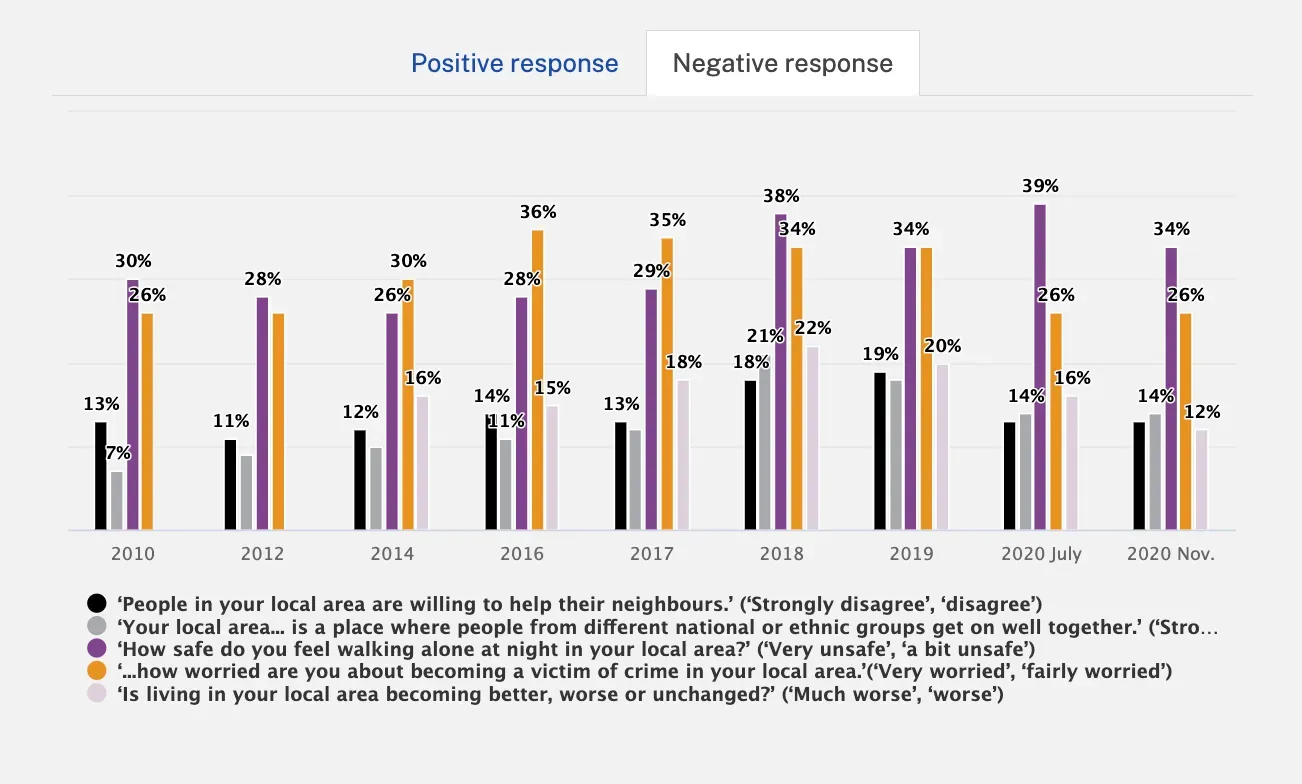
indicated sense of belonging in Australia to a ‘great’ or ‘moderate’ extent
in November indicated their local area living conditions were better or unchanged
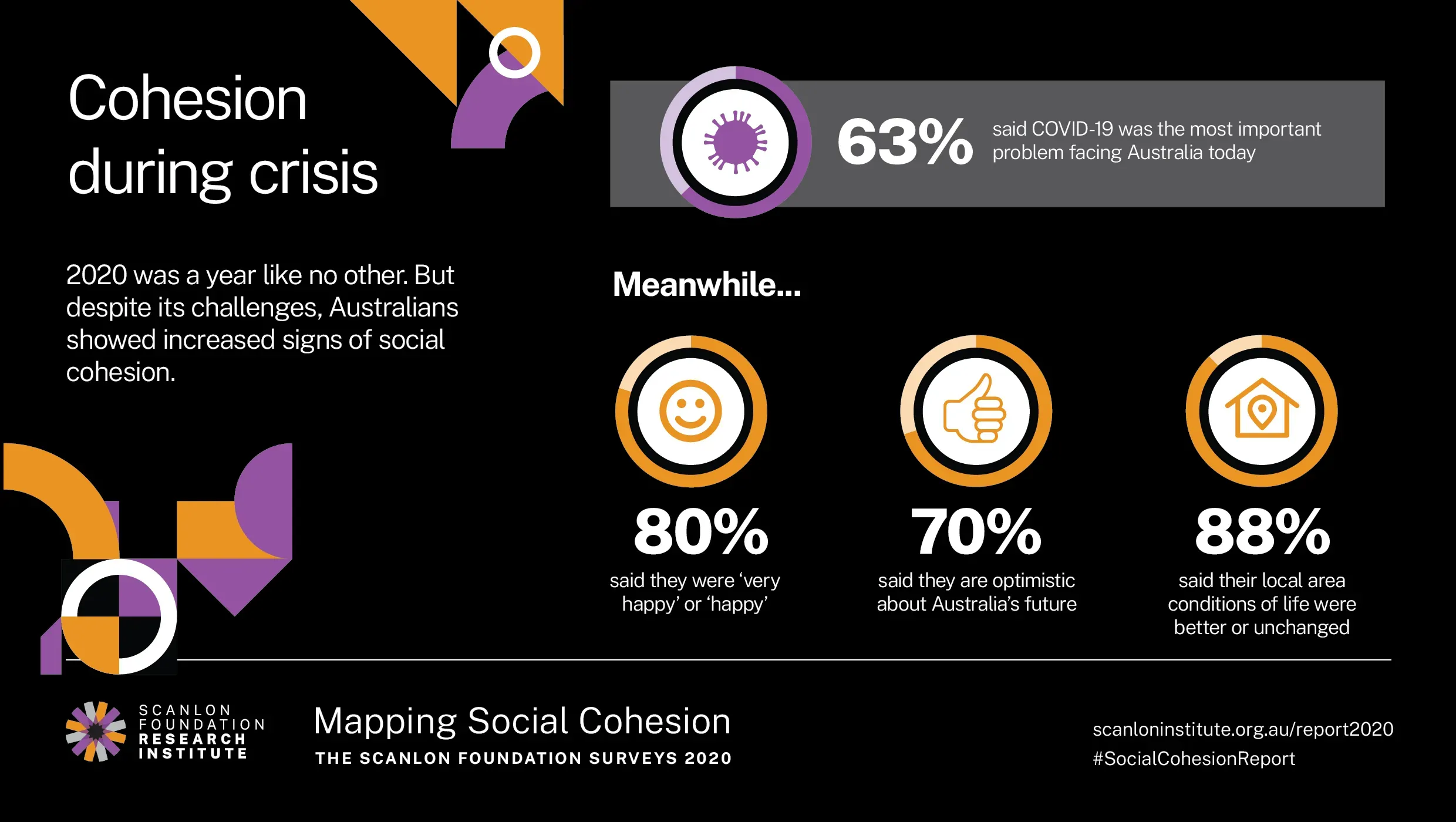
Download the 2020 Mapping Social Cohesion Report
Chapter 2
Strengthening Social Justice
In all five domains, the SMI was higher in 2020 than in 2019, with the most significant shift in the domain of social justice, which saw a nineteen index point increase. In large part, this shift can be attributed to high levels of satisfaction with government during the crisis.
Prior to 2020, trust in the federal government was at a low level for a decade. In 2020 trust rose to 54%, the highest proportion recorded in the surveys.
How often do you think the government in Canberra can be trusted to do the right thing for the Australian people?
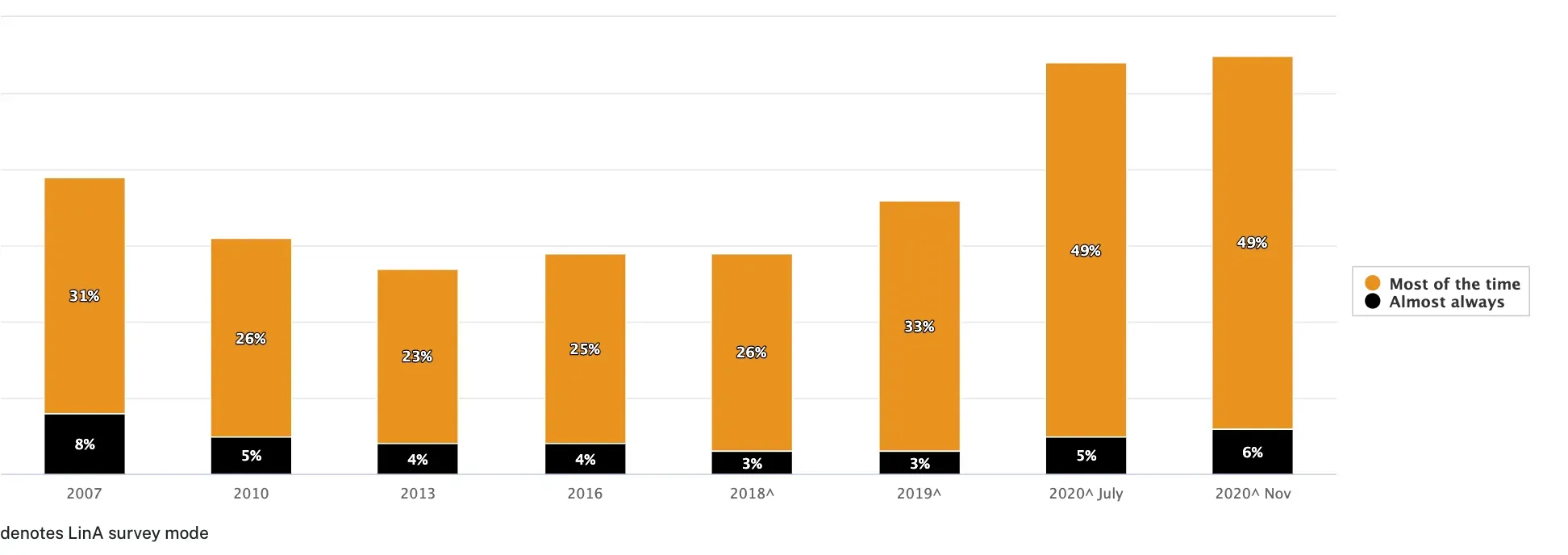
believed the federal government responded to the COVID-19 pandemic ‘very well’ or ‘fairly well’
of respondents in the five mainland states indicated government-imposed lockdown restrictions were ‘definitely required’ or ‘probably required’
of respondents were strongly opposed to government handling of the COVID-19 crisis
‘How satisfied are you with your present financial situation?’
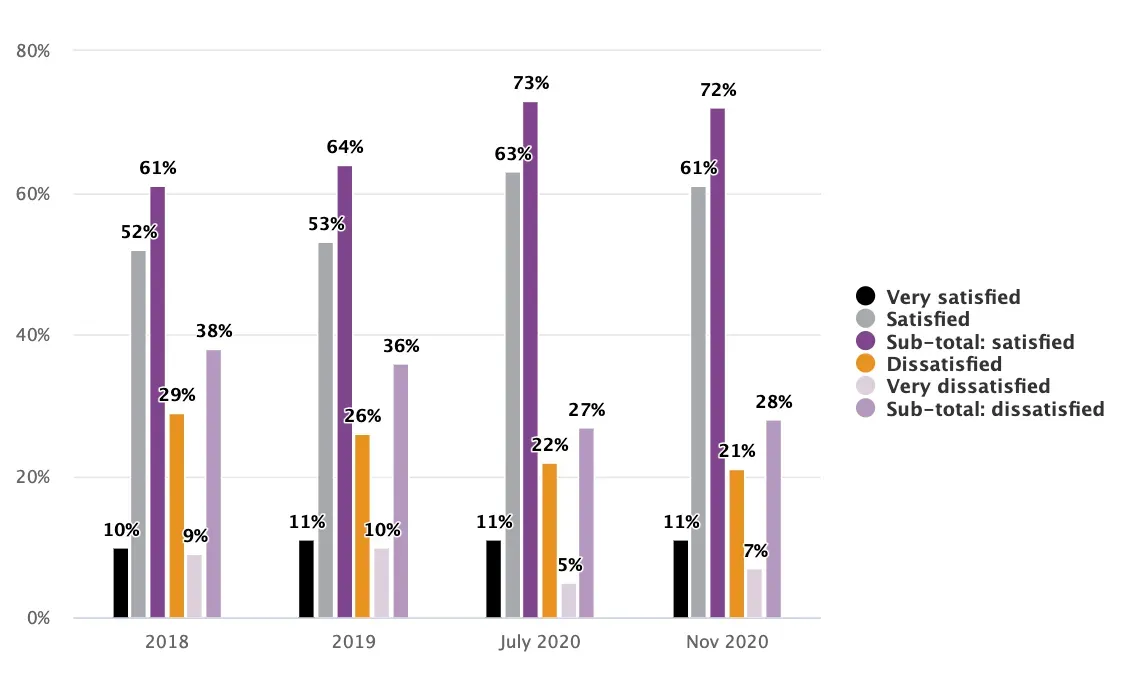
of respondents indicated they were living ‘reasonably comfortable’, ‘very comfortable’ or ‘prosperous’, higher than 2018 or 2019.
agreed people on low incomes receive enough financial support from the government, substantially higher than 40% in 2019
agreed with the statement ‘Australia is a land of economic opportunity where in the long run, hard work brings a better life’
Democracy
When asked if ‘the system of government we have in Australia works fine as it is, needs minor change, needs major change, or should be replaced’
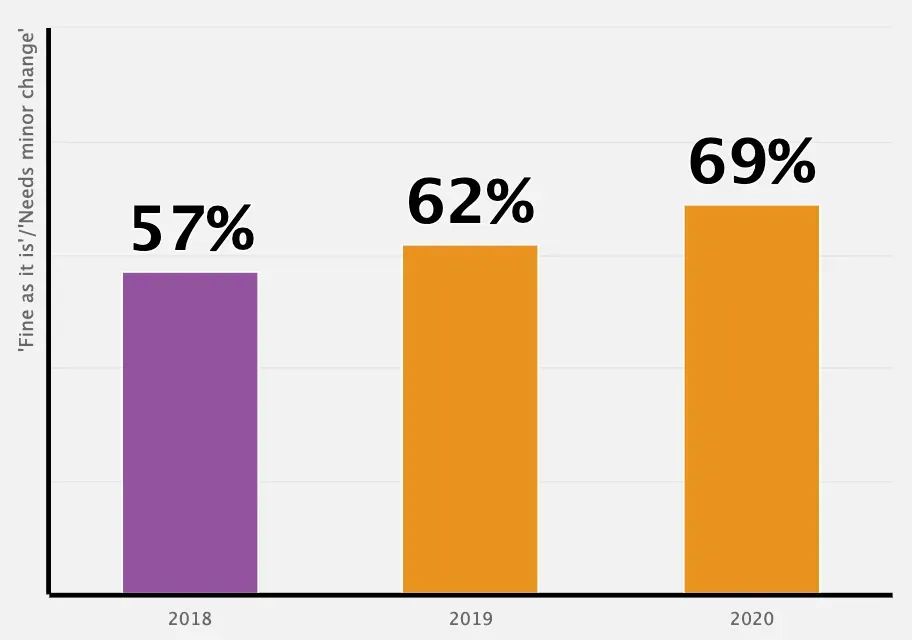
When asked if ‘having a strong leader who does not have to bother with parliament and elections’ would be a good or bad way of governing Australia
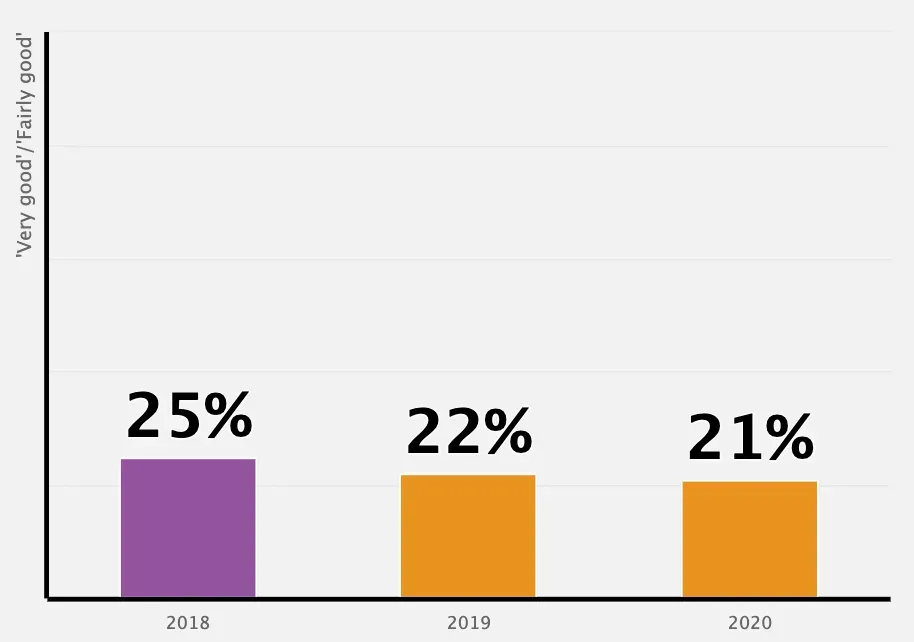
However, when asked if ‘during the COVID-19 pandemic … having a strong leader who does not have to bother with parliament and elections’ would be a good way of governing’, a substantially higher proportion, 37.5% indicated agreement.
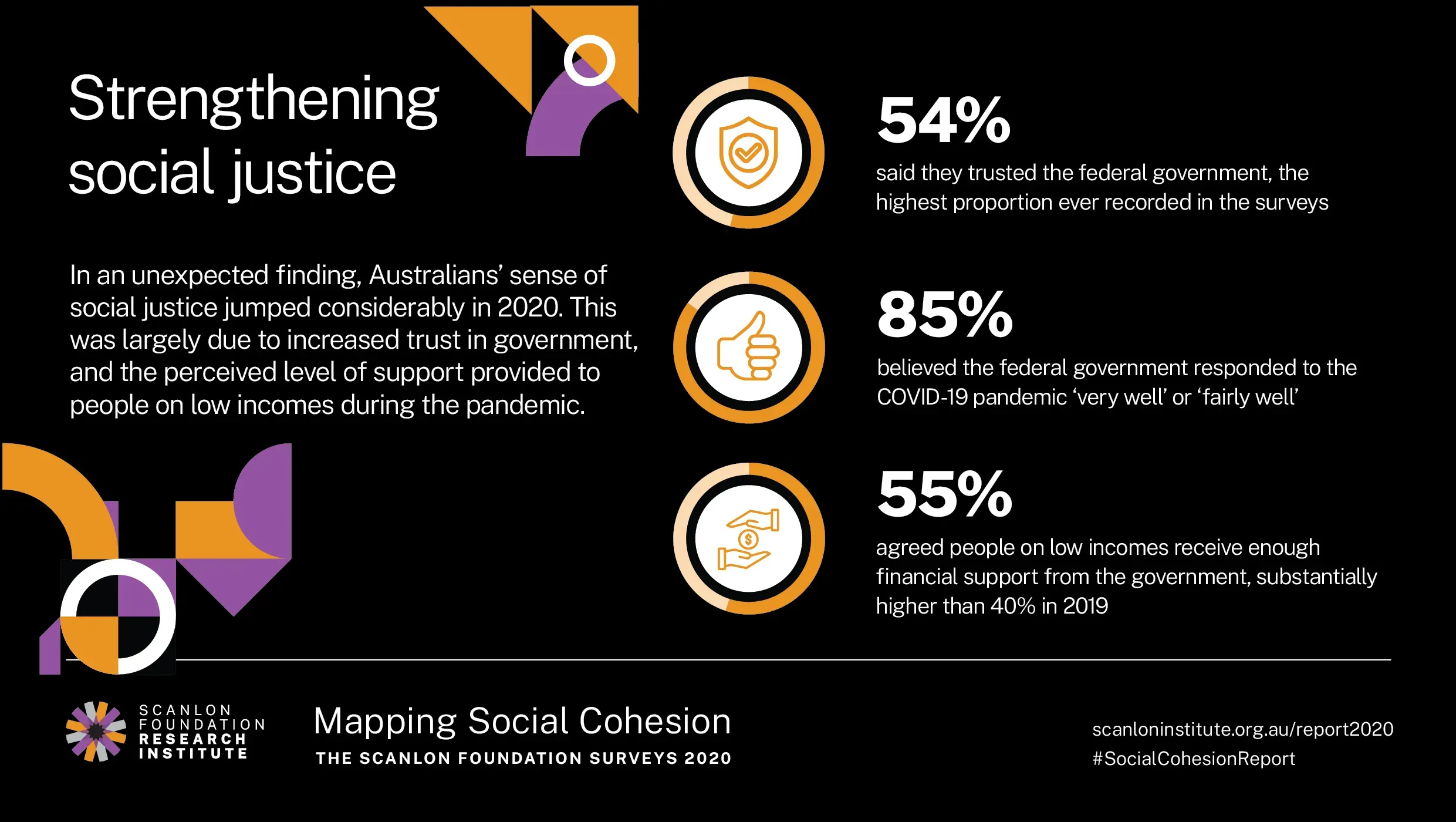
Download the 2020 Mapping Social Cohesion Report
Chapter 3
Openness to people and the world
In a year that saw borders close, did we remain open to the world?
Participants were asked what they think of an increasingly globalised Australia, our immigration intake, and multiculturalism.
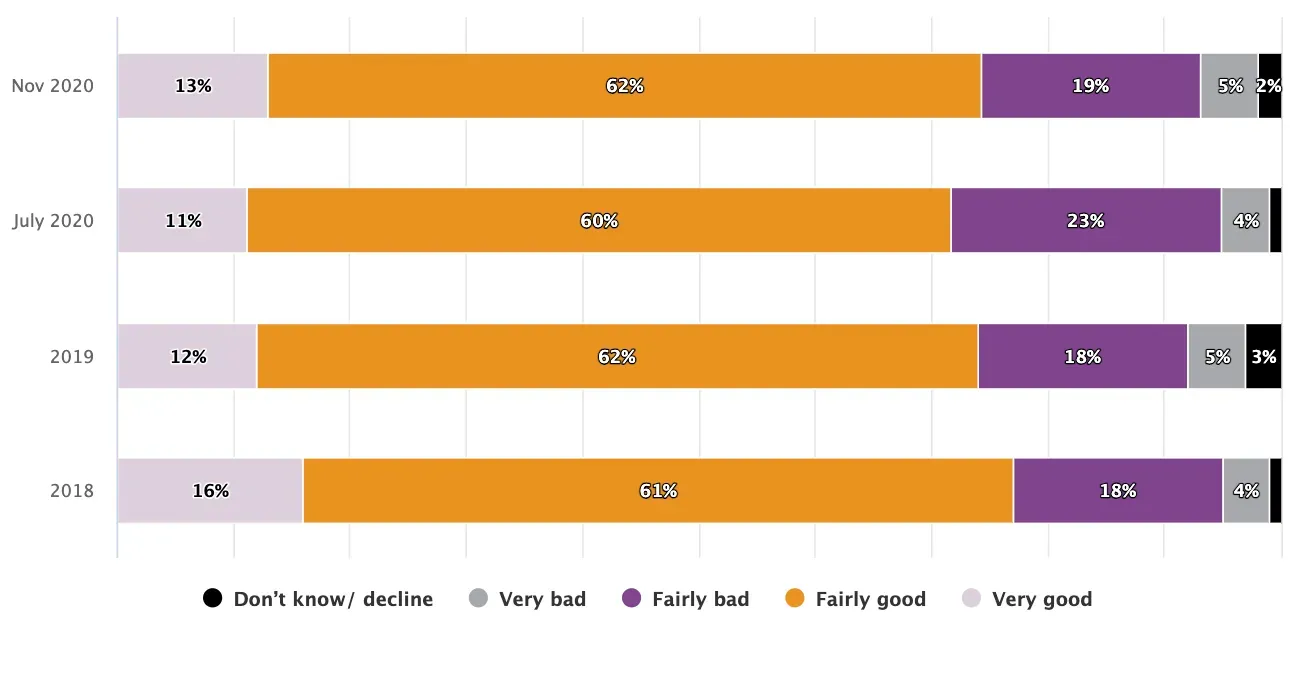
of participants say Australia should trade ‘more’ or ‘about the same’ with the rest of the world
said we should trade ‘less’ with the rest of the world
‘What do you think of the number of immigrants accepted into Australia at present? Would you say it is…’
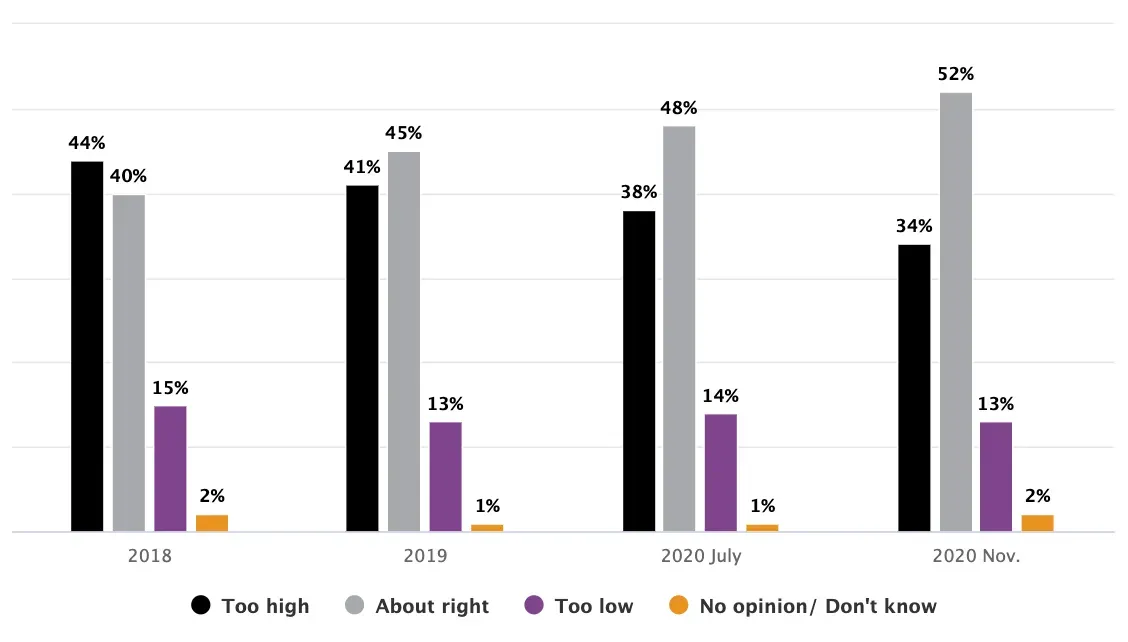
agreed ‘accepting immigrants from many different countries makes Australia stronger
disagreed that ‘it should be possible for [immigrants] to be rejected simply on the basis of their race or ethnicity’
disagreed with discrimination in immigrant selection on the basis of religion
agreed ‘someone who was born outside of Australia is just as likely to be a good citizen as someone born in Australia’
‘Multiculturalism has been good for Australia’

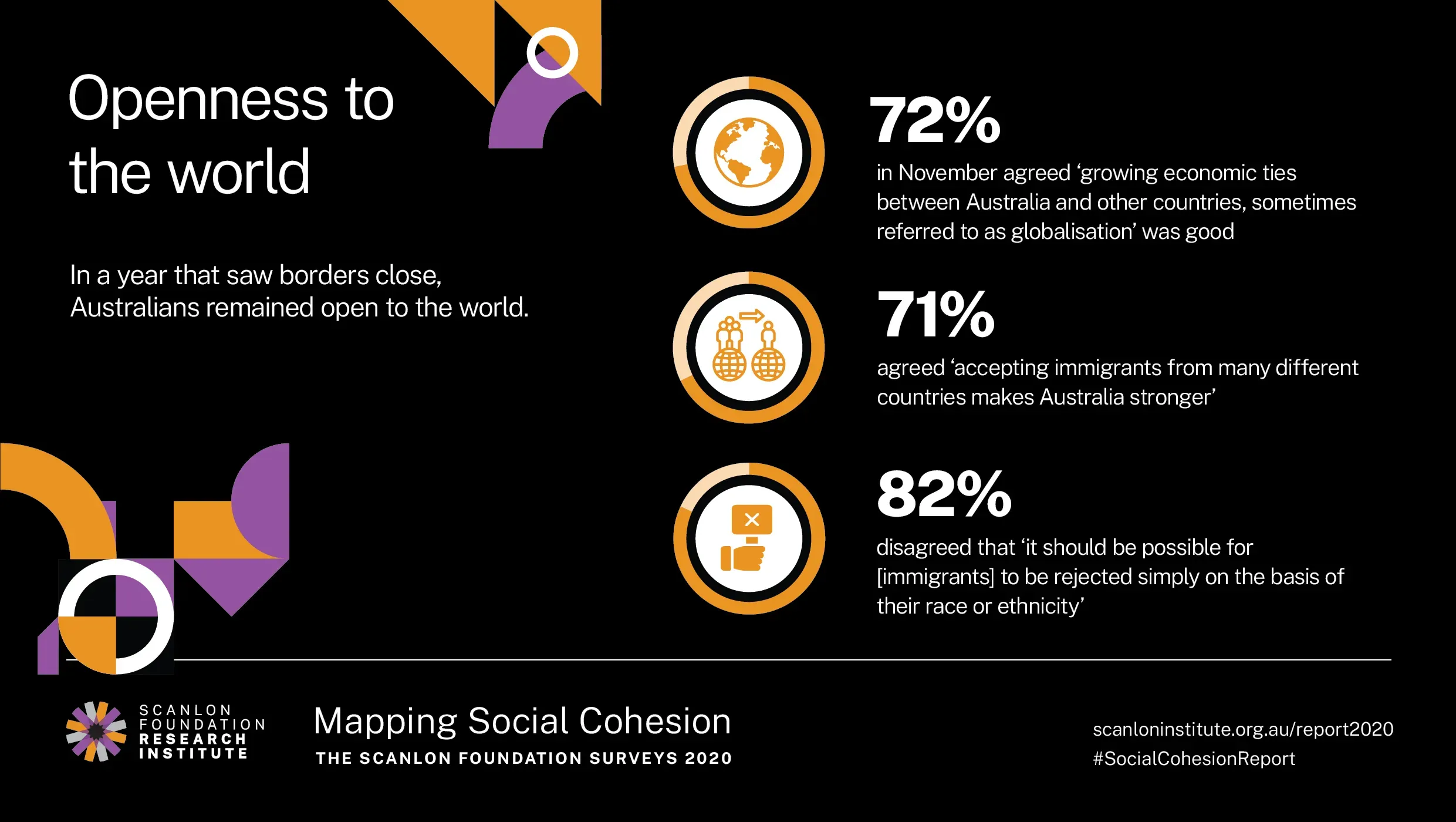
Download the 2020 Mapping Social Cohesion Report
Chapter 4
Underlying Concerns
While the vast majority agree multiculturalism has been good for Australia, there are some underlying concerns. In Australia as in all countries there is a hierarchy of ethnic preference which informs attitudes towards religious and ethnic minorities.
This hierarchy is evident in the 2020 survey findings, but results compared with earlier surveys show no substantial negative trend – or heightened xenophobia – is evident.
‘Is your personal attitude positive, negative or neutral towards …?’
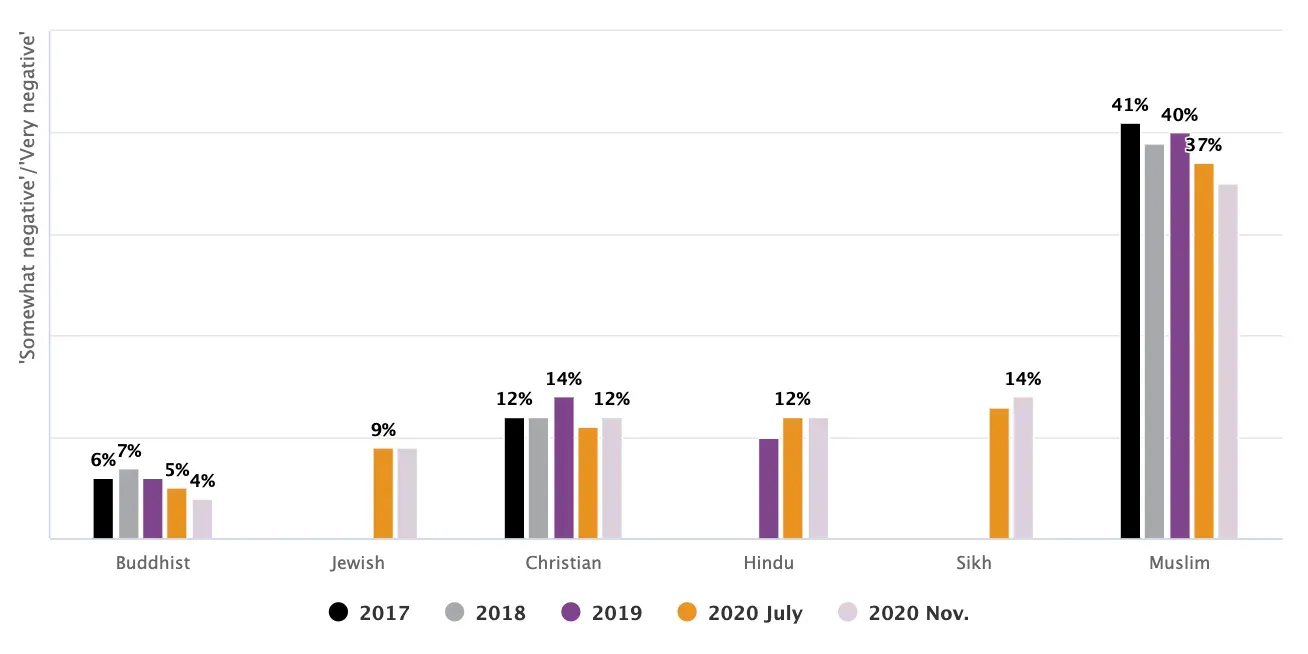
Have you experienced discrimination on the basis of your skin colour, ethnicity or religion?
of Australia-born participants report discrimination
of English-speaking background report discrimination
of non-English speaking background report discrimination
‘Would you say your feelings are positive, negative, or neutral towards [national group]?’

of respondents born in an Asian country reported experiences of discrimination, in line with previous years
of respondents born in an Asian country reported increased experiences of discrimination during the COVID-19 pandemic, compared to 14% Australia-born
of respondents born in an Asian country indicated they were concerned ‘about discrimination experienced by your friends and/or members of your local community … during the COVID-19 pandemic…?
of respondents born in an Asian country view racism as ‘a very big problem’ or ‘a fairly big problem’ in Australia
Chinese Australians
‘During the COVID-19 crisis, have you experienced more, less or about the same extent of discrimination as before the crisis in Australia?
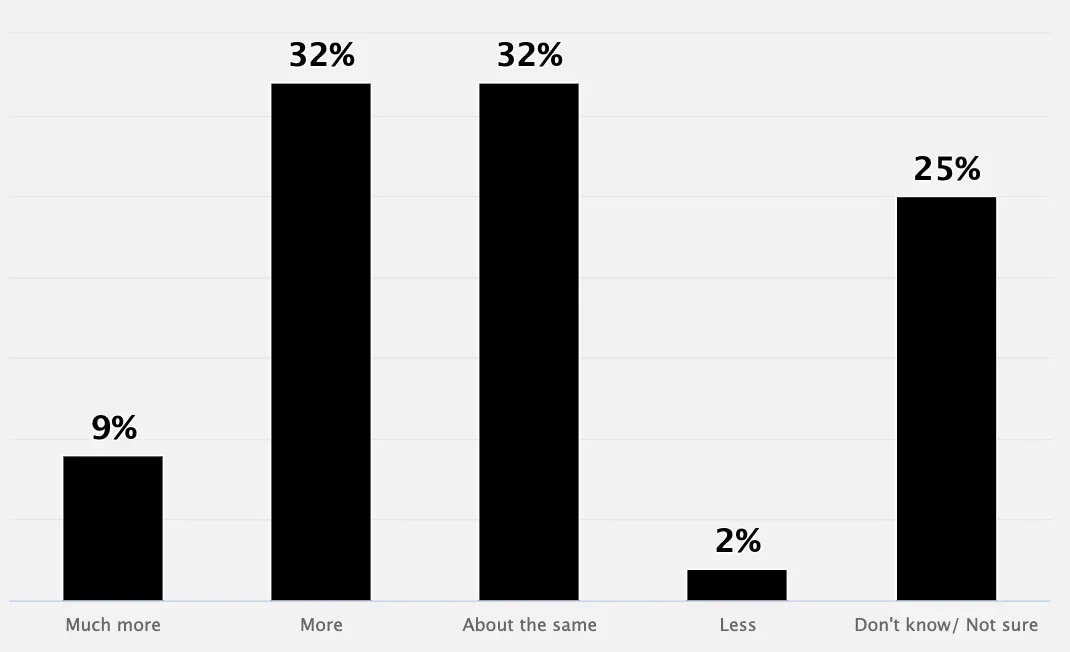
of Chinese participants indicated experience of discrimination
indicated ‘much more’ or ‘more’ discrimination during COVID-19
indicated racism in Australia during the COVID-19 crisis was ‘a very big problem’ or ‘a fairly big problem’
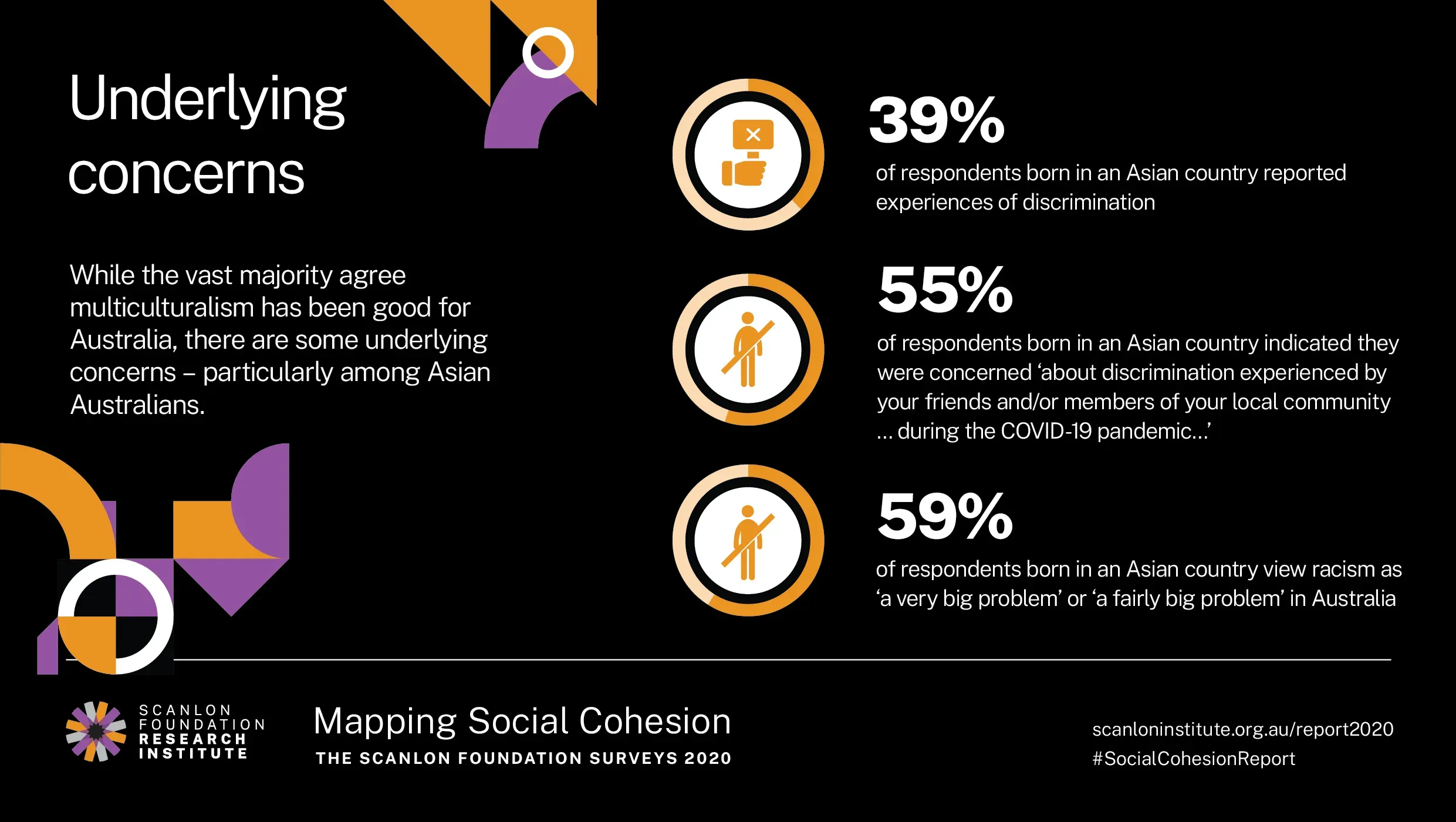
Download the 2020 Mapping Social Cohesion Report
Chapter 5
Differing attitudes across demographics
In addition to analysis by birthplace and religion, the report includes analysis by other segments of the population to determine the extent to which opinion varies from findings for the total population. Two groups – those who had their employment affected and younger Australians (18-24 years old) – stood out from the rest.
Population segments: Employment status
How satisfied are you with your present financial situation?
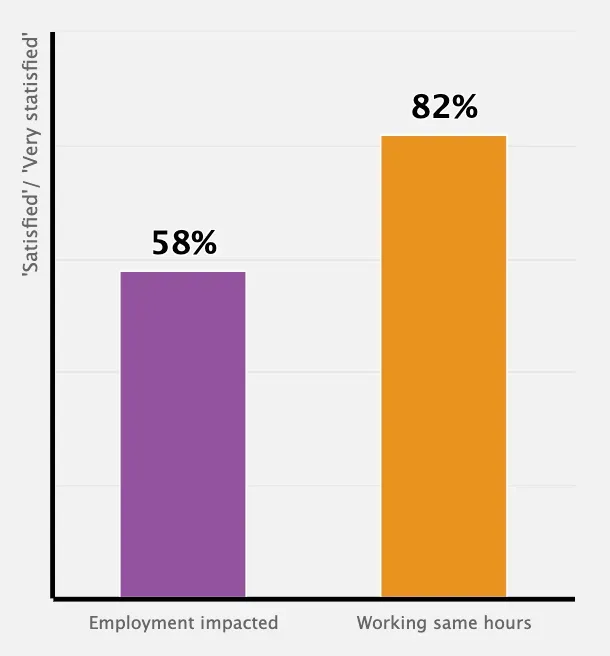
Asked if they were ‘optimistic or pessimistic about Australia’s future’
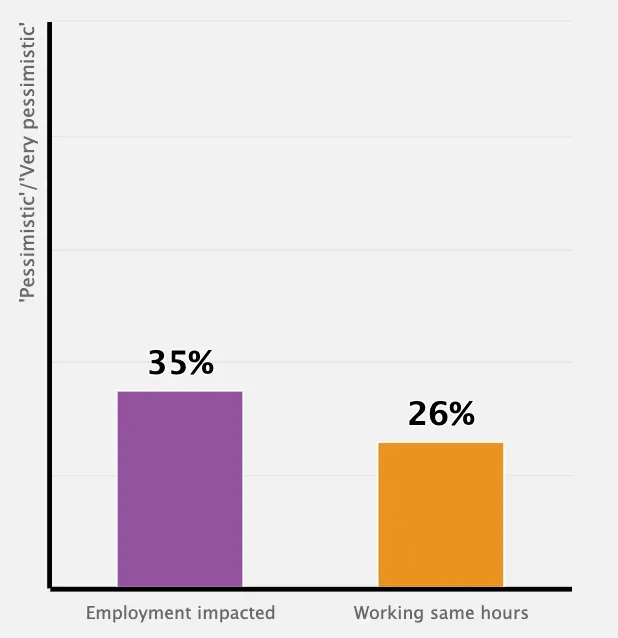
In response to the statement ‘people on low incomes receive enough financial support from the government’
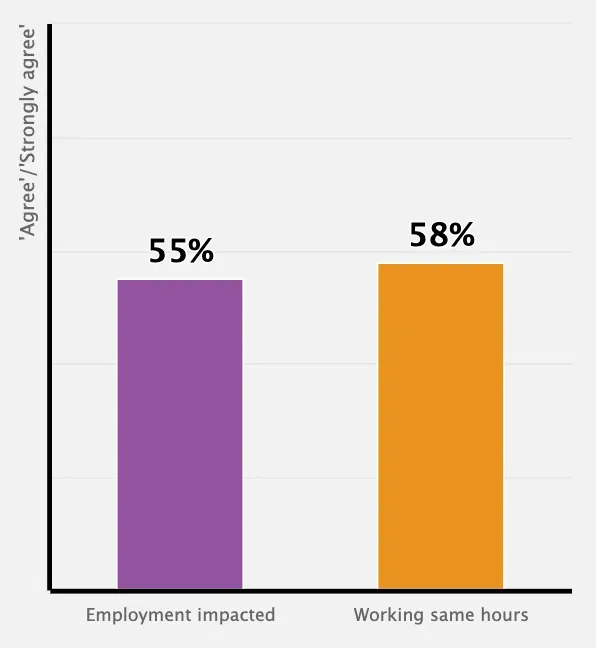
Immigration and cultural diversity, selected question, negative response, by hours of work and employment
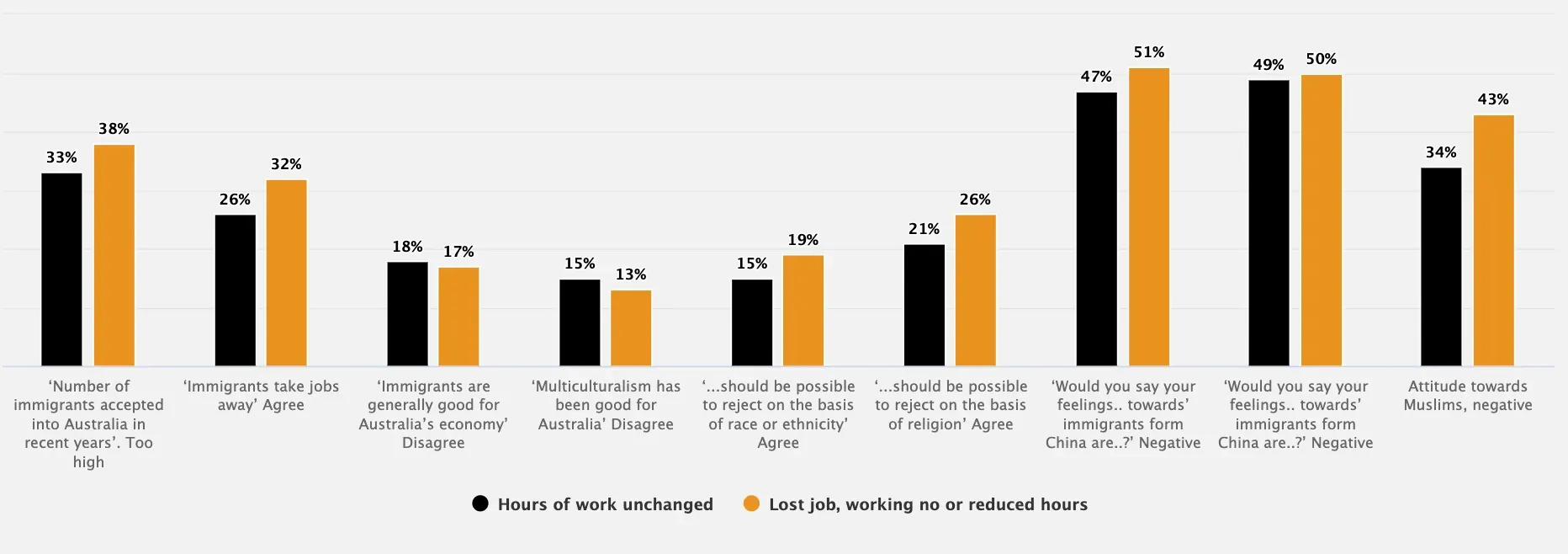
Population segments: Young respondents
In discussion of the impact of the pandemic, it has been argued that youth disproportionately bear the economic cost in the labour market.
2020 findings show that only 42% of respondents aged 18-24 were working the same hours as before the pandemic, compared with 64%-72% of those aged 25-64.
When asked if ‘people on low incomes receive enough financial support from the government’
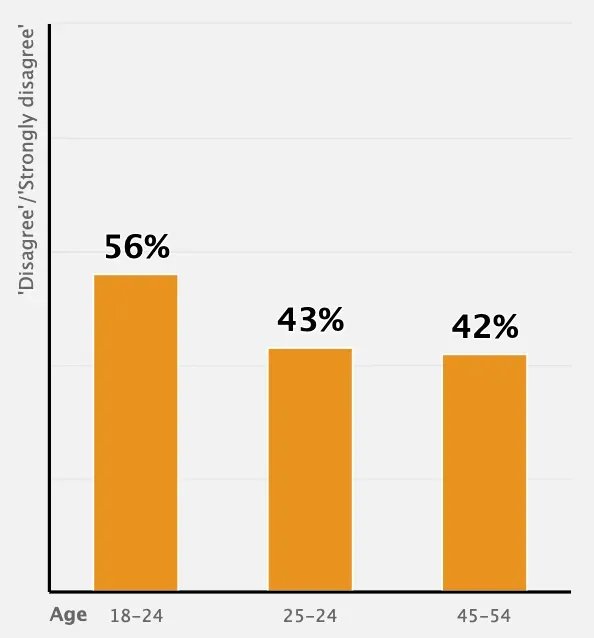
When asked if Australia is a ‘land of economic opportunity where in the long run hard work brings a better life’
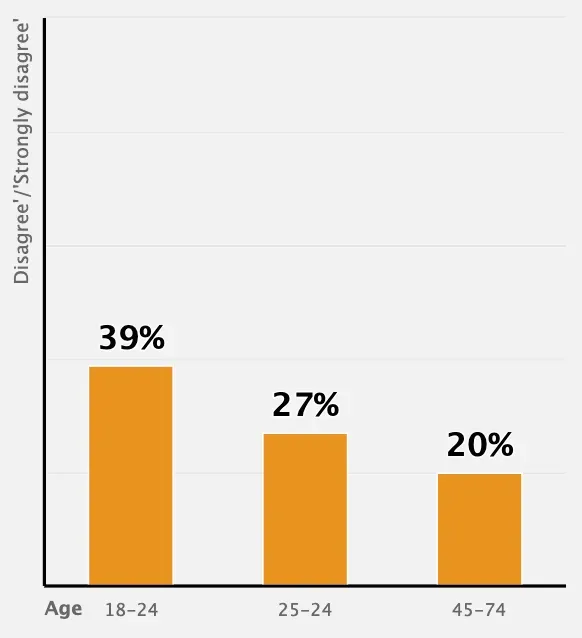
When asked if they expected their lives to be ‘improved in three or four years’
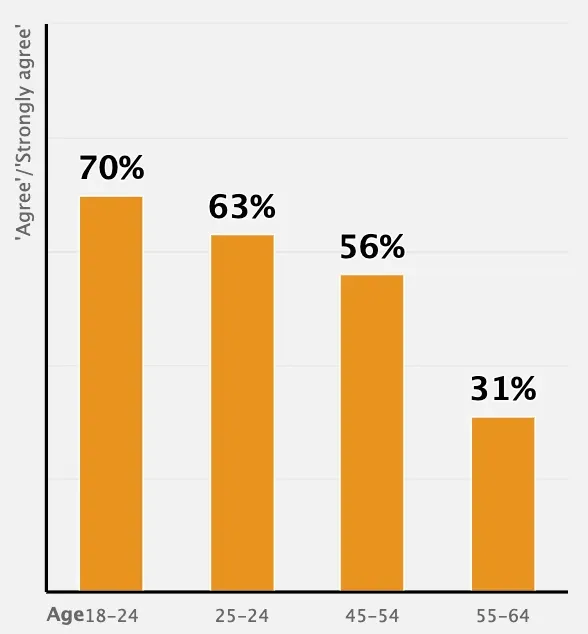
Immigration and cultural diversity, selected questions, positive response by age
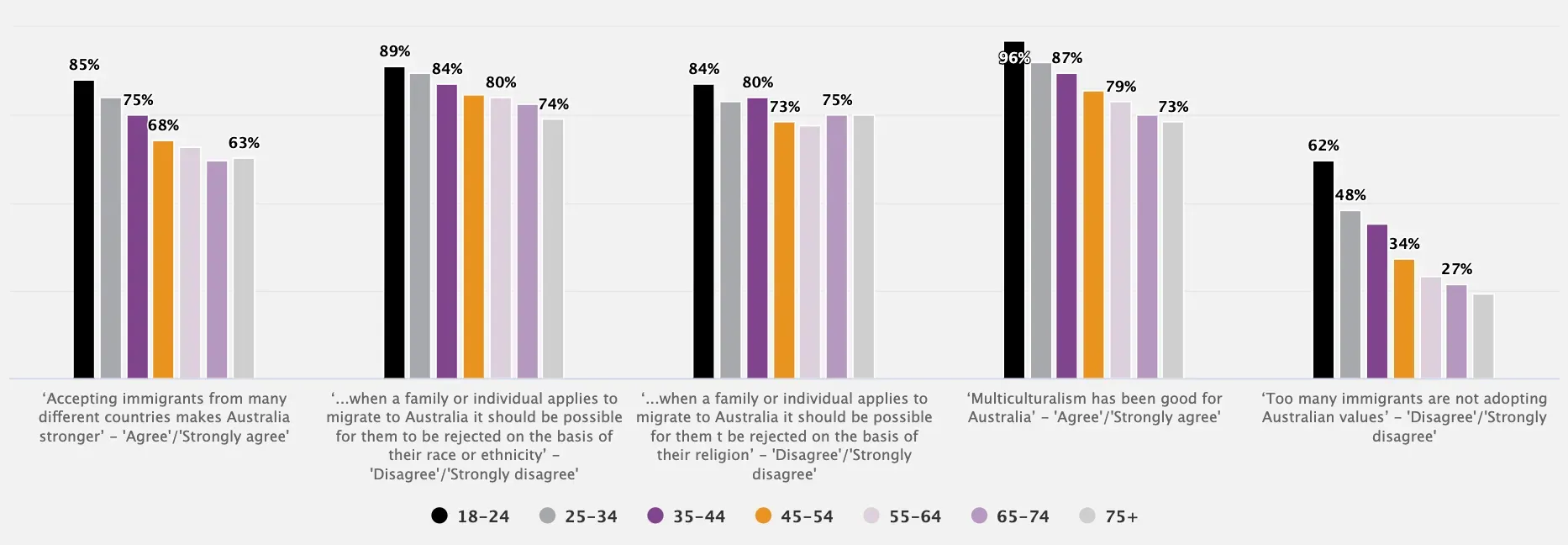
When asked if immigration in recent years has been too high
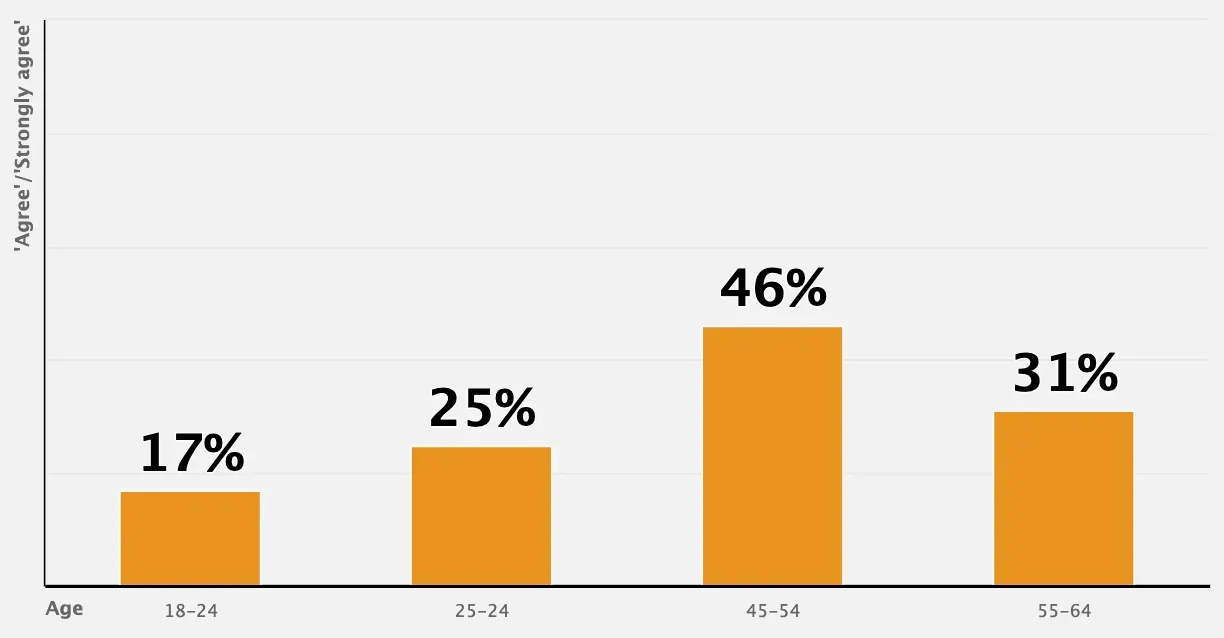
Download the 2020 Mapping Social Cohesion Report
Conclusion
A resilient society
The 2020 Mapping Social Cohesion surveys have found evidence of a resilient society, and in an unexpected finding, the Scanlon Monash Index moved in a positive direction, both in July and November. A key factor in the largely positive results appears to be the increased level of trust and satisfaction in government throughout 2020, and the widely held view that effective leadership is being provided during a time of crisis.
In November, nearly nine months since the COVID-19 pandemic disrupted life across the world, a large majority of Australians remained optimistic for the future.
Although not without qualification, the substantially positive findings described in the 2020 report provide of a strong, cohesive and resilient society.
